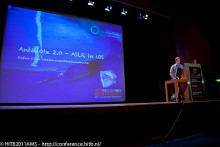Stefan Esser offers patch for critical encryption bug in OS X Mavericks
A German security company has released an unauthorized patch for Apple's OS X Mavericks that it claimed closes the hole the Cupertino, Calif. giant left wide open in the operating system's implementation of basic Internet encryption.










































































